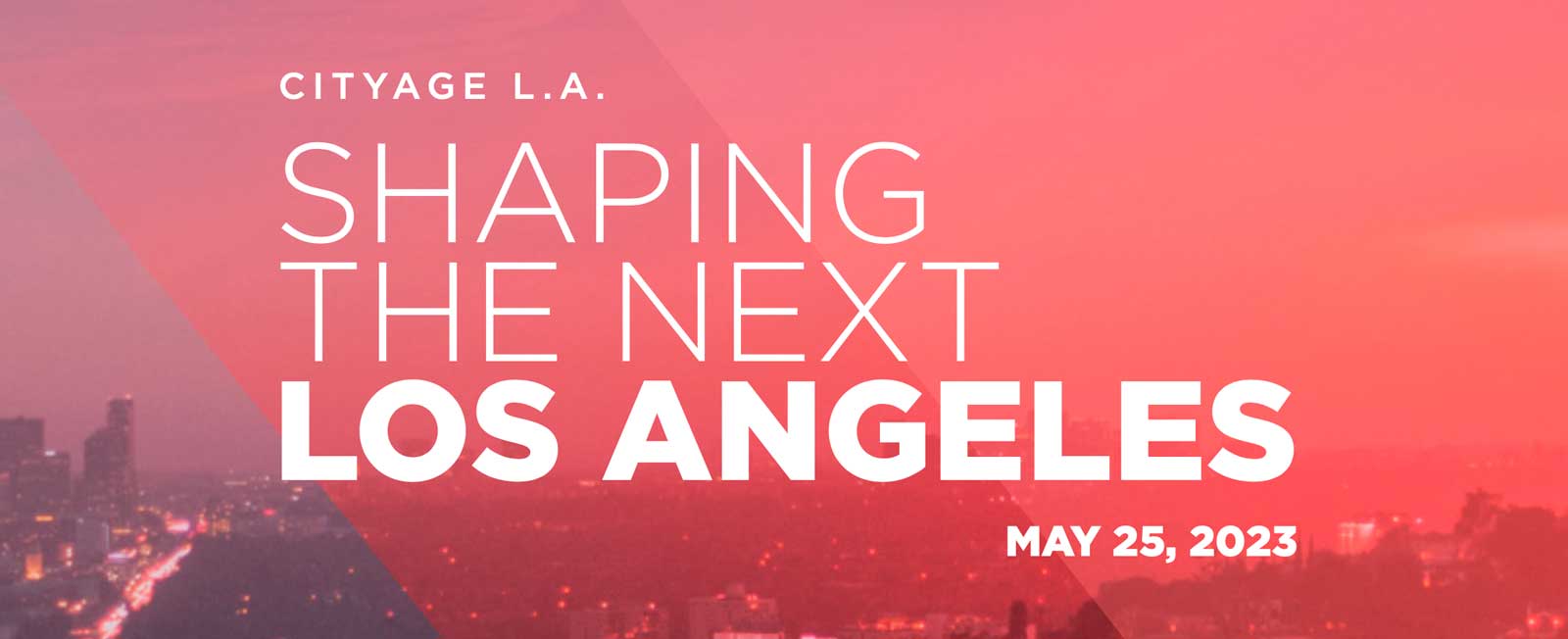CityAge proudly returned to Los Angeles on May 25, gathering a diverse group of more than 120 visionaries and experts. Through panels, presentations, breakout discussions and Q&A, the event highlighted how LA and its region could lead the way in shaping the cities of tomorrow. The half-day summit focused on reimagining transit and mobility through innovative solutions and leveraging technology.
In the afternoon we hosted engaging breakout sessions, conducted under the Chatham House Rule, to foster in-depth conversations and generate a comprehensive list of priorities specifically tailored to Los Angeles. By encouraging group participation and networking, the breakout session ensured that all attendees had their voice heard and contributed to a collaborative discussion. Here are the calls to action participants defined during each breakout:
CHANGING HOW WE FLY
- Address urban infrastructure challenges: Given the existing struggles with charging electric vehicles, immediate attention should be given to assessing and upgrading power systems to support the widespread adoption of electric flying taxis. Investment in infrastructure upgrades and smart grid technologies is essential to ensure seamless integration of these new modes of transportation.
- Promote equitable access to electric flying taxis:To prevent the potential exacerbation of social stratification, it is crucial to prioritize accessibility and affordability of electric flying taxis.Policymakers, industry leaders, and transportation advocates must work together to develop inclusive strategies that ensure a diverse range of individuals can benefit from this transformative technology.
- Optimize space allocation through collaboration:The establishment of heliports for electric flying taxis presents an opportunity for productive public partnerships. However, careful consideration of land use and urban planning is vital to strike a balance between efficient utilization of limited space and maintaining the integrity of city cores. Collaborative efforts between government entities, private sector stakeholders, and urban planners can help identify suitable locations and design sustainable infrastructure solutions.
GOING FOR THE GOLD IN TRANSPORTATION
- Prioritize faster and more convenient transportation options: Invest in technologies like information sharing systems and Wi-Fi connectivity in metro links to enhance speed and convenience for commuters. Improved connectivity can boost productivity and enhance travel experiences.
- Improve multimodal infrastructure: Enhance connectivity and integration between different modes of transportation by developing e-bike infrastructure, dedicated bus lanes, and coordinated signal timing. These initiatives will facilitate smoother traffic flow and offer more convenient travel options.
- Foster collaboration in planning and implementation: Collaborate among government agencies, transportation authorities, and urban planners to effectively implement technologies and infrastructure upgrades. Prioritize investments, align policies, and ensure seamless integration of various transportation solutions.This collaborative approach will lead to an efficient and interconnected transportation system, enhancing the speed and convenience of travel for all commuters.
RE-THINKING LA’S INFRASTRUCTURE
- Enhance highways through data integration for optimized traffic flow and prioritize sustainable transportation alternatives, particularly in the context of a car-free Olympics.
- Allocate funding for infrastructure development, including bike/scooter lanes, and leverage data to improve safety measures. Encourage private sector investments in these areas to drive progress.
- Focus on power infrastructure readiness to support the increasing demand for electric vehicles (EVs). Invest in EV charging stations and diversify fuel access options to promote widespread adoption and reduce reliance on fossil fuels. Collaborate with government bodies, utilities, and private stakeholders to ensure successful implementation.
DATA-SHARING
- Enable compensation and monetization of personal data: Develop strategies that allow individuals to benefit from sharing their personal data by providing compensation or enabling them to monetize it. This approach can incentivize data sharing and encourage individuals to actively participate in data-sharing initiatives.
- Foster cross-platform collaboration and streamline data sharing: Promote collaboration between different platforms and stakeholders to facilitate seamless data sharing. Establish a simple and standardized process for sharing data, making it easier for organizations to exchange information. By reducing barriers and complexity, more comprehensive and valuable datasets can be generated, leading to improved insights and solutions.
- Build public trust and involve the community in solution development: Emphasize transparency and accountability in data-sharing practices to build trust among the public. Engage the community by involving them in the development of solutions that utilize shared data. This participatory approach ensures that the interests and concerns of individuals are considered, fostering a sense of ownership and cooperation.
CityAge Los Angeles, sponsored by Deloitte, Supernal and California State University Northridge (CSUN), served as a catalyst for progress, driving the transformation of cities into vibrant, sustainable, and inclusive spaces. The collective expertise and shared vision of attendees laid the foundation for a future where cities thrive, and communities flourish.




